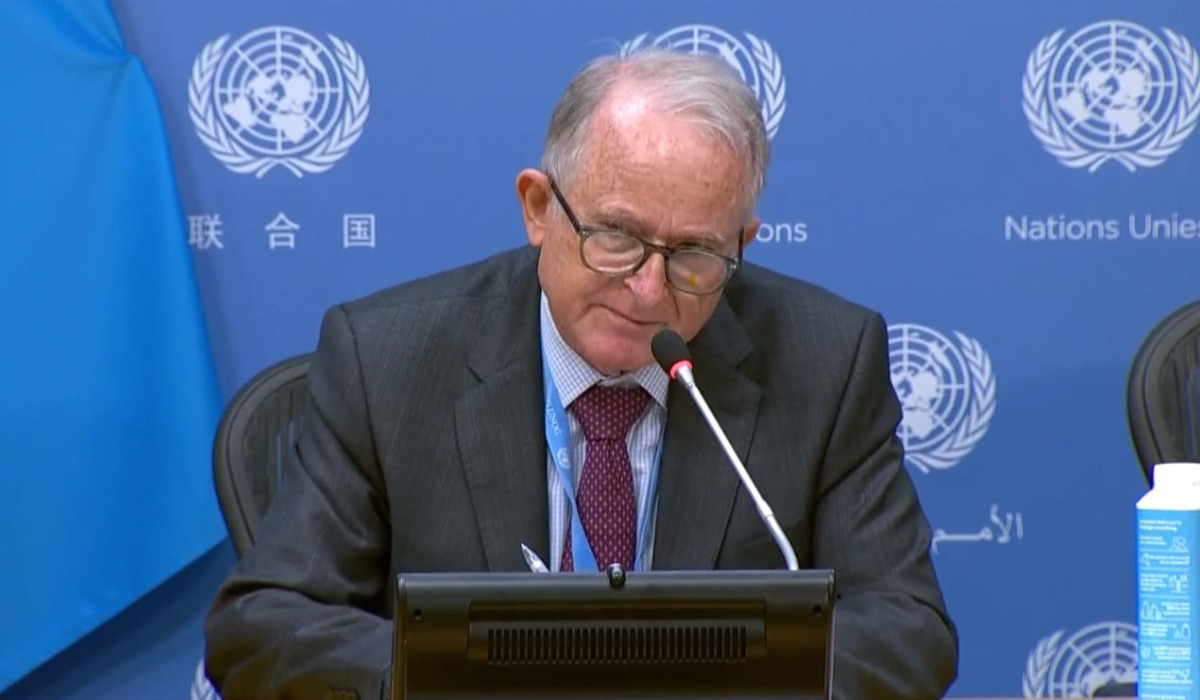The U.N. special rapporteur on human rights in Afghanistan, Richard Bennett, said this week that the Taliban’s policy on women amounts to “a crime against humanity” and that individual members of the group could be held accountable for their decisions.
In an interview with VOA, Bennett said should they be held accountable for gender persecution, the International Criminal Court would have a responsibility to act against these individuals.
He said the Taliban’s overall approach toward women is “leading to a position tantamount to gender persecution. And gender persecution is an international crime in the Rome Statute, it’s a crime against humanity, and individuals can be held accountable.”
Bennett stated that the world needs to stand with Afghan women so they can get back the rights they have lost since August 2021. “The Taliban clearly have an intentional policy to more or less erase women and girls from public life, and that’s unacceptable in any country in the 21st century.”
He stated that the U.N. is engaging in many discussions with the Taliban and encouraging other member states, particularly those in the region who are Muslim-majority countries, and organizations such as the Organization of Islamic Cooperation (OIC) to make very clear to the Taliban that they are on their own, that they are isolated.
“This ban on education for girls and women has no religious justification, and no other Muslim countries support the position of the Taliban on it,” he said.
Bennett said however that he is concerned that the international community might get to a point where they “turn the other way”.
“What worries me is that they say, ‘Well, you know, we’re not getting anywhere in Afghanistan. Let’s put our resources somewhere else.’ That worries me – that there is less attention, not more.”
“This is the time to get more support, more attention to Afghanistan, not less attention,” he said.
UNAMA chief warns of drop in aid
On Wednesday, Roza Otunbayeva, Special Representative of the Secretary-General and head of the United Nations Assistance Mission in Afghanistan (UNAMA) said: “Afghanistan under the Taliban remains the most repressive country in the world regarding women’s rights, and it has been distressing to witness their methodical, deliberate, and systematic efforts to push Afghan women and girls out of the public sphere.”
As she briefed the UN Security Council on the situation in Afghanistan, she also warned that a Taliban administration crackdown on women’s rights is likely to lead to a drop in aid.
The United Nations has made its single-largest country aid appeal ever, asking for $4.6 billion in 2023 to deliver help in Afghanistan, where two-thirds of the population – some 28 million people – need it to survive, said Roza Otunbayeva.
But she told the UN Security Council that providing that assistance had been put at risk by Taliban bans on women attending high school and university, and working for aid groups.
“Funding for Afghanistan is likely to drop if women were not allowed to work,” Otunbayeva said. “If the amount of assistance is reduced, then the amount of US dollar cash shipments required to support that assistance will also decline.”
Last month, US State Department spokesman Ned Price also implied that there had been deliberations on aid to Afghanistan and said the US wanted to make sure “the Taliban is under no illusions that they can have it both ways – that they can fail to fulfill the commitments that they’ve made to the people of Afghanistan … and not face consequences from the international community.”





